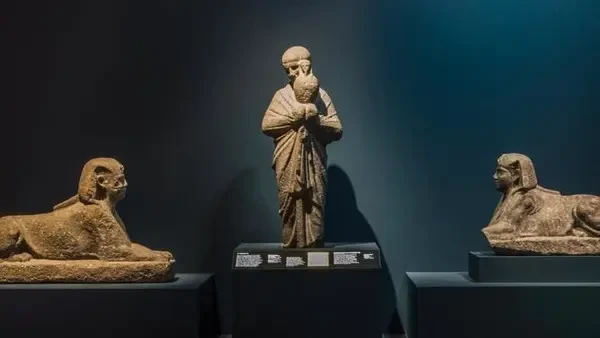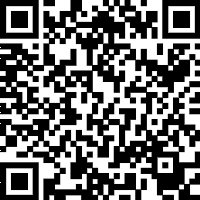The Remote Sensing Authority is exploring ways of cooperating with the Federation of Producers and Exporters of Surgeons.
Dr. Ayman Ashour, Minister of Higher Education and
Scientific Research, stressed the importance of cooperation between research
bodies and different bodies and institutions to enhance cooperation and
complementarity of efforts in order to promote community development and
support efforts to improve the national economy.
In this context, Dr. Islam Abu Al-Magd received the Chairman of the National
Authority for Remote Sensing and Space Science, General Ashraf Muhammad
Al-Sharqawi, Chairman of the Board of Directors of the General Federation of
Producers and Exporters of Bastards, and Dr. Hend Abdalla, Director of the
Central Laboratory for the Analysis of Residues of Pesticides and Heavy
Components in Food, to discuss joint cooperation.
Dr. Islam Abu Al-Magd explained that the Agricultural Applications Division of
the National Remote Sensing and Space Science Authority had several activities
and cooperated in the implementation of several projects with various entities,
including the Ministry of Agriculture, Land Rehabilitation, the National
Service, Icarda and others.
During the meeting, Dr. Mohammed Abu El-ghar, Head of the Agricultural
Applications Department of the Authority, presented several activities of the
Division, noting that the Division was working in 12 parallel areas, such as
inventory and monitoring of cultivation and regulation at various levels of the
governorates and the State, assessment of strategic crops, carrying out studies
of the physiological status of crops during the agricultural stages up to the
harvest to rapid intervention to solve any problem, identification of land uses
and optimal planning of agricultural land to achieve the highest productivity,
monitoring of agricultural diseases and pests and agricultural risks
threatening agricultural production, monitoring of water needs and optimal
management of water resources, testing of the efficiency of irrigation and
water stress systems, production of soil maps and determination of the
suitability of soil for agriculture, determination of levels of risk for
desertification and land degradation, monitoring and assessment of agricultural
contamination on agricultural products, quality and specifications of
agricultural products, monitoring of medicinal and aromatic plants and identification
of the best places for their cultivation, smart farming, precision agriculture
and optimal agricultural management.
He noted the possibility for the Authority to cooperate with the two parties in
establishing an early system of agricultural diseases and pests; based on the
role of satellites in calculating the combined thermal units necessary for pest
development, identifying the most dangerous areas and determining the
appropriate time for control, establishing an interactive digital system for
export farms throughout the Republic, establishing geoinformatics databases for
producers and producing land for export crops, periodically accounting for
major export crops, their location and area, tracking the quality and
conformity of the agricultural product, determining exposure to pests, and
predicting the major strategic crop yields one and a half months before
harvest.
Dr. Hend Abdalla gave a detailed presentation on the central laboratory for the
analysis of pesticide residues and heavy elements in food. She invited the
Chairman of the Commission and teachers to visit the laboratory, noting the
Commission ' s potential for identifying exportable land, pointing to the
involvement of the laboratory with soil analyses of heavy elements and
cumulative pollutants, and to cooperate in comparative studies of pesticide
residues using central laboratory sensors and measuring technology; to explore
the possibility of Mobile Lab working for use in ports and as an indicator for
exporters of pesticide residues within the farm, as well as to examine crops
with export problems due to residual pesticides to develop solutions, and to
identify suitable time for farmers for preventive spraying and pest control, as
well as to cooperate in research, graduation projects and training.
General Ashraf Al-Sharqawi explained that they were providing resources to
farmers and production inputs such as potato seeds, palm seedlings, fertilizers
and fertilizers, stressing the important role of the remote sensing body in
detecting the quality of the crop and determining whether it was organic or
not, proposing a strengthening of the regulatory role in the use of pesticides
in the local market and domestic products in cooperation with the National
Remote Sensing Authority to ensure food safety, and proposing the
identification of the best places and early warning for the cultivation of
potato seeds in areas free of brown mold.
Dr. Tahir Qadh, Director of the Marketing Department of the Central Pesticide
Residual Laboratory, explained that the Remote Sensing Authority had an active
and influential role in medicinal and aromatic plants and could cooperate with
the German Foundation for International Cooperation in locating medical and
aromatic plants and identifying their breeding sites and pesticide residues.
The meeting was attended by Dr. Mahmoud Al-Sisi, Director of Laboratory
Training, and Wolfe, Professors and Researchers of the Agricultural
Applications Division.











